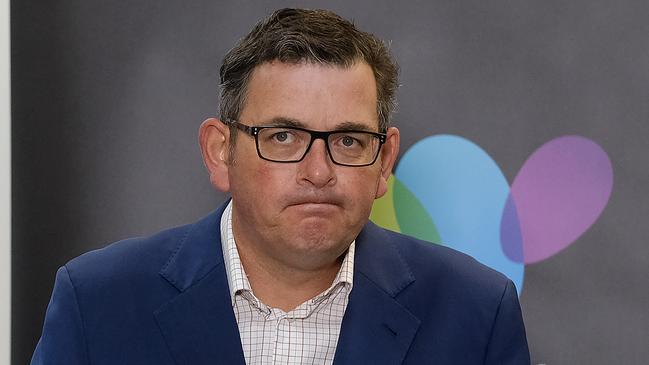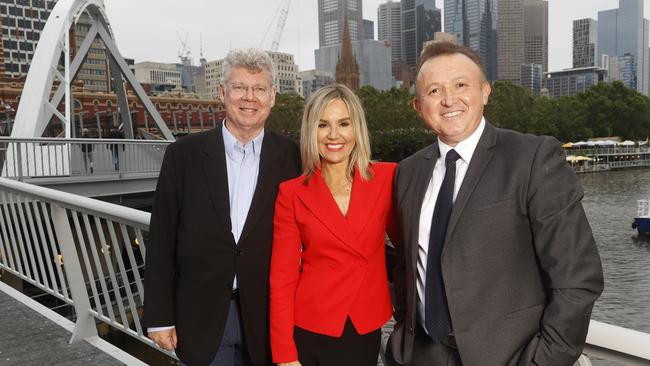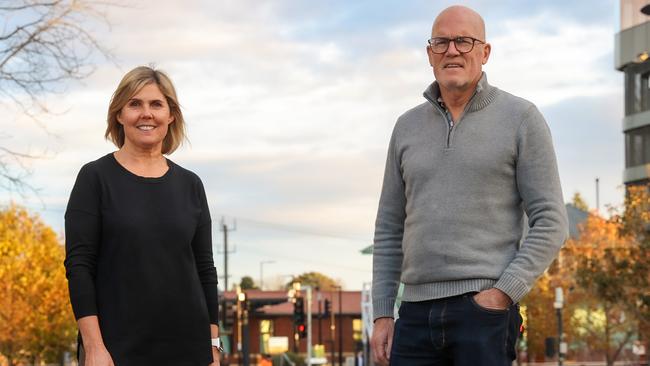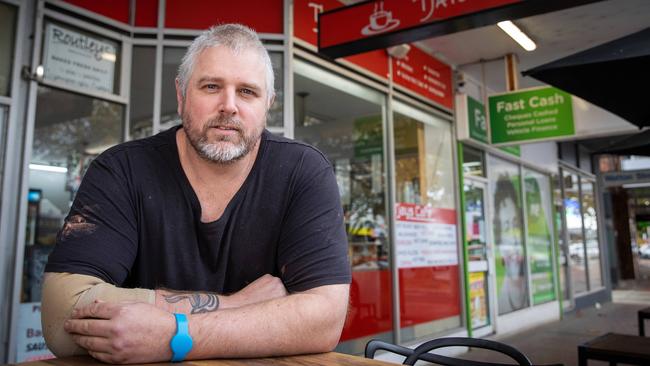Carnage expected for Victoria’s two major parties at November poll, with these lower house seats at risk of going to minor parties
Minority parties are tipped to win several key seats and shake up the November state election. Check if your electorate is one of them.
Victoria
Don't miss out on the headlines from Victoria. Followed categories will be added to My News.
Victoria’s major parties are facing a thumping in November with political experts predicting potential chaos at the state election.
Even the most cautious commentators expect the Greens, teal independents and the new Victorians Party to claim between nine and 13 seats from the majors.
Three seats in Melbourne’s outer west and north – Werribee, Melton and Point Cook – are considered a strong chance to go to the Victorians Party.
Broadmeadows and Kororoit have also been identified as being at severe risk of going to the newly established centrist party.

The Greens are predicted to pick up Richmond and Albert Park while the independent teals, if they run, could grab Hawthorn, Brighton, Caulfield, Kew and Sandringham.
However a more bullish analysis obtained by the Herald Sun predicts the Victorians Party could win as many as 10 seats on its own.
That analysis – which assessed seats by location, demographics and voting trends – suggests up to 42 of the 88 lower house seats could be at risk of changing hands.
While the minors wouldn’t be expected to win most of those seats, their massively increased votes and preferencing could deliver several surprises.
Even Labor sources admit its internal research predicts the party could lose up to 10 seats, with an expected backlash against Daniel Andrews over the government’s pandemic lockdowns.
While the Andrews government had a massive win in 2018, the loss of 10 seats would wipe out almost all of its majority. It currently holds 55 of 88 lower house seats, with 45 needed to form a majority government.
Further analysis reveals only 54,000 voters would be required to shift their vote away from Labor to put up to 19 seats in jeopardy.
Kos Samaras, director of bipartisan polling firm RedBridge, expects the election to mirror last month’s federal election.
He said if the Victorians Party was properly resourced it could have success in seats in outer Melbourne that have historically shown some vulnerability.
He said they included Melton and Werribee which both recorded double-digit swings against Labor at the 2018 election.
But Mr Samaras predicted the fragmentation of the two party vote in the outer suburbs would not deliver the Liberals victory.
“As we have seen, minor parties tend to eat their vote as well,” he said.
In addition to the inner eastern suburbs that the teals could take off the Liberals, opposition leader Matthew Guy’s seat of Bulleen is also believed to be at risk
Bill Lang, executive director of Small Business Australia and co-founder of the Victorians Party, said its research had shown deep dissatisfaction with the major parties.
“People from all backgrounds are telling us that they feel ignored and voiceless and have no affinity or connection with any of the traditional parties,” he said.
“At the Victorians Party there will be no deals, we will approach each electorate on preferences on a seat by seat basis, assessing each candidate on whether they live or work in the community they are intending to represent, whether they bring ‘real lived’ experience to the parliament outside of the political system and how they intend to contribute to their local community and the people of Victoria.

“We have listened and Victorians have had enough of career politicians, they want change and true local representation and the Victorians Party will give Victorians the choice in every seat across the state to vote for a career politician who will continue to ignore you, or balance the power by electing a true local who will always put you, your community and the state first – we believe that is the choice every Victorian deserves.”
RedBridge senior consultant Tony Barry said the federal election results showed the Liberal and Labor bases in Victoria were eroding.
“Victoria is now a very fragmented constituency and the lockdowns demonstrated that we are no longer a homogeneous community of shared experiences,” he said.
“Labor’s base was hurt by the lockdowns and this is where they are politically very vulnerable.
“There’s a big political opportunity for the Victoria Party to tap into this emerging mood sentiment and go after Labor’s base.
“If they can put together a campaign machine that gives them reach and repetition, they can convert this into seats.”
RedBridge polling conducted exactly one year out from the election, reported in the Herald Sun, showed almost 40 per cent of voters had walked away from the major parties.
It showed less than a third of Victorians, 32.4 per, planned to vote Labor – a drop of more than 10 per cent from the 42.9 per cent who backed the ALP to victory in 2018.
Support for the Liberal Party had dropped further still, from 30.43 per cent to 28.8 per cent, while almost 40 per cent, say they are undecided or will back the minor parties.
Swings expected in the suburbs

Nearly a third of Ringwood voters who voted Labor or Liberal in 2018 are now undecided, according to a straw poll of 50 residents.
Five Liberal voters and 10 Labor voters said they weren’t sure who they were going to vote for yet, many voicing their concerns with both major parties. The seat includes the suburbs of Mitcham, Ringwood, Ringwood East and parts of Blackburn North, Nunawading, Donvale, Ringwood North and Croydon South.
Ringwood is considered a marginal seat, with a two party-preferred margin of just 2.8 per cent.
In 2018, Liberal MP Dee Ryall lost her seat to Labor MP Dustin Halse.
Mr Halse was embroiled in a sex scandal in June last year, after which he announced he wouldn’t recontest the seat in 2022. Using parliamentary privilege, Liberal MP James Newbury named Mr Halse as the person being investigated for having sex in his office.
The Labor Party preselected Will Fowles, the current member for Burwood, to run as his replacement. But Mr Fowles has also been the subject of controversy.
In 2019 Mr Fowles smashed a door at a Canberra hotel after he had a dispute with staff over access to his luggage.
The MP took a leave of absence before returning to work, blaming the incident at the time on crippling anxiety.
Ringwood residents Tina and Daryl Marchant differ on who they will vote for in November.
“I haven’t made my mind up to who I’ll vote for this state election,” Ms Marchant said. “I voted Greens in the federal election earlier this year for the first time ever.
“I think I’m really starting to move away from the two major parties.”
Mr Marchant says he will “continue to vote Labor”.
Pallas under pressure
The electorate of Werribee is putting Treasurer Tim Pallas on notice, as residents have not forgotten the pain inflicted by the pandemic.
The seat takes in the suburbs of Wyndham Vale, Werribee, Werribee South, Manor Lakes and parts of Hoppers Crossing, and areas stretching west to Little River.
In 2018, Mr Pallas held the seat on an 8.8 per cent two-party preferred margin against independent Joe Garra, a local GP.
Dr Garra, who has not yet confirmed whether he will run in this year, picked up 20 per cent of votes in the last election.

A straw poll of 50 people in Werribee revealed nine out of 23 residents, who said they voted for Labor in 2018, were either undecided or leaning towards a Greens or independent candidate.
Six people who voted for the Liberal Party in 2018 said they were undecided.
A few of the local residents who remained undecided said they were planning to vote for independent candidate Dr Garra, but weren’t sure if he was going to run again.
Local, and owner of TJays Cafe, Troy Brown said many residents in the area were “against Daniel Andrews”.
“I think a lot of people in this area aren’t a fan of him, or the way he handled the lockdowns,” he said.
As an owner of a small business Mr Brown said the pandemic was a “really tough period”.
“After the lockdowns ended … when we saw thousands of cases every day, we stopped receiving (financial) assistance, when we needed it most,” he said.
“We were a month off closing … we’re still struggling.”
Mr Brown said he expected an independent or Greens candidate to gain a lot of votes, as a result of people feeling dissatisfied with the two major parties.



